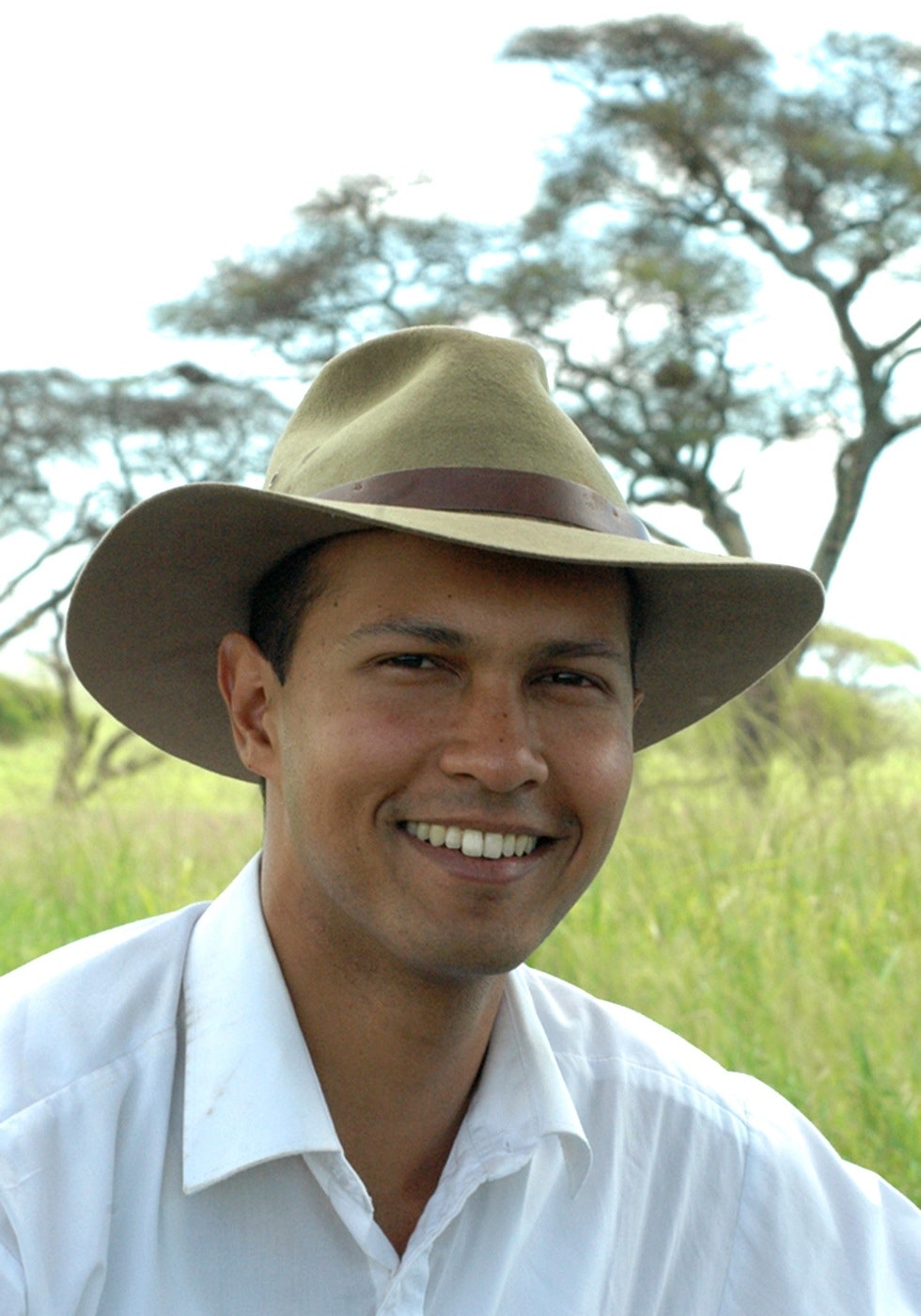Winner of the 2015 Whitley Gold Award donated by the Friends & Scottish Friends of WFN
Each year a member of our alumni is selected to receive the Whitley Gold Award, a profile and PR prize worth £50,000 in project funding, awarded in recognition of their outstanding contribution to conservation.
A global issue
One of every three bites of food we eat is dependent on pollinators. These tiny insects – the bees, wasps, butterflies, moths, flies and beetles – play a critical role in crop pollination. The provision of this free ‘ecosystem service’ is worth an estimated $250 billion annually to the global economy. Without pollinators, the planet’s food security would be at risk, with significant livelihood ramifications; and billions would need to be spent to pollinate crops artificially. However, the increased use of agricultural pesticides and loss of natural habitats has led pollinator numbers to decline dramatically.
From grassroots to government
Dino Martins is a Kenyan entomologist and Chair of the Insect Committee of Nature Kenya. For over 15 years, Dino has worked with farmers in East Africa to raise awareness about the importance of pollinators and encourage the adoption of more sustainable farming practices that conserve pollinators, boost yields, and improve livelihoods. Dino’s work has contributed to local and global conservation programmes, national policies and biodiversity strategies.

A Whitley Award winner in 2009 and a 2011 Continuation Funding recipient, with the support of WFN, Dino has:
- Reduced pesticide use on over 500 farms by up to 75%, and 10% of farms have stopped using them altogether, following outreach regarding the negative effect of pesticides on pollinators and, in turn, on crop yields.
- Improved local income and food security; all 500 farmers reached by the project have benefitted from increased crop yields, some by up to tenfold.
- Boosted awareness and produced a handbook of pollinator-friendly farming practices which has been accessed by over 150,000 farmers to date.
- Lobbied government to secure a ban of several highly toxic pesticides, which is now being implemented in Kenya.
- Worked with partners in government and civil society to develop Kenya’s first legislation to specifically protect bees from pesticides, and recognise their harmful effects.

With his Whitley Gold Award Dino will:
- Tackle the importation, use and spread of unregistered harmful pesticides entering Africa by working with local and international partners.
- Scale up the project to train 4,000 additional farmers in sustainable practices, increase the number of crop varieties monitored, and encourage the planting and conservation of hedgerows for pollinators.
- Develop practical publications for use by farmers that advocate conservation policy.
- Educate 200,000 children, 1,000 high school pupils and 100 university students about the importance of pollinators and sustainable agriculture.
- Encourage stewardship of nature and public engagement to celebrate pollinators through outreach and digital platforms.
“Pollinators put food on our tables, nutrition in our bodies and money in farmers’ pockets.”
With thanks to everyone who donated material to support the creation of Dino Martins’ Whitley Gold Award film, including National Geographic.





